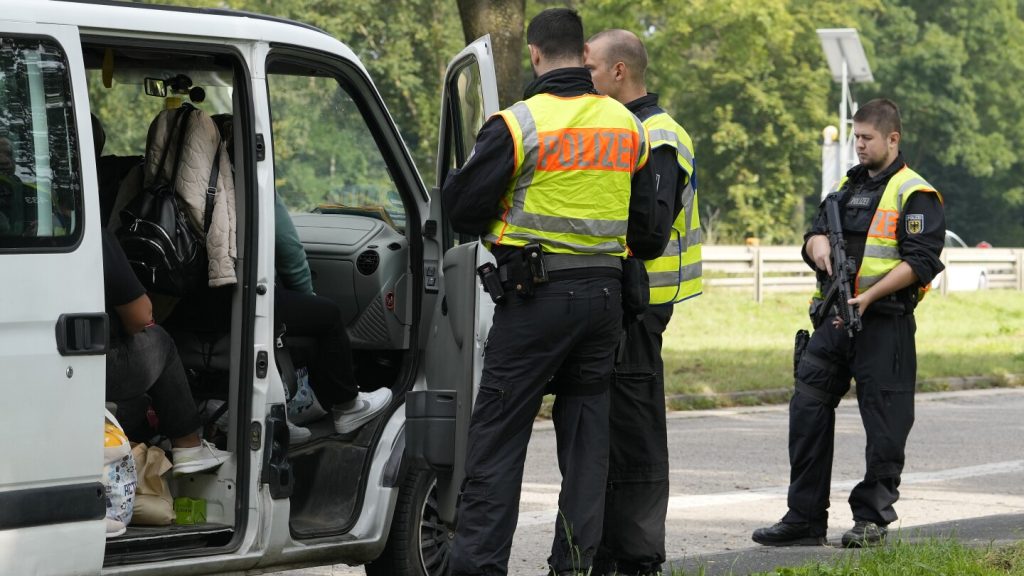Germany has begun random border checks at its borders with five Western European nations in an effort to crack down on irregular migration and crime. The checks, which started at the borders with France, the Netherlands, Belgium, Luxembourg, and Denmark, are scheduled to last for six months. This action comes in response to recent extremist attacks in Germany, including a knife attack in Solingen that left three people dead, and another attack in June that resulted in the death of a police officer.
Some see these border controls as a departure from the EU’s free travel and trade agreement known as Schengen, which allows for easy movement of people and goods across borders within the EU. Germany, as the largest country in the EU and with borders to more countries than any other member, faces challenges in implementing these controls. While some trade unions have raised concerns about the impact on trade, it is unlikely that Germany will return to a system of closed borders and mandatory checks for all individuals crossing the border.
The head of Germany’s Federal Police Union, Andreas Rosskopf, acknowledged the challenges posed by the expanded border checks, given the length of Germany’s borders. With over 1,400 kilometers on its western border alone, along with existing checks along the eastern and southern borders, it is not feasible to check every vehicle crossing the border. Rosskopf emphasized the need for realistic expectations regarding the effectiveness of the checks in curbing migration and people smuggling.
The EU allows member states to temporarily reintroduce border controls in cases of serious threats to internal security, but these measures are meant to be time-limited and implemented as a last resort. While the border checks in Germany are controversial, especially in light of the EU’s principles of free movement, the government has imposed them as part of a broader crackdown on irregular immigration. These measures come after the success of far-right parties in recent state elections in eastern Germany, with another election scheduled for Brandenburg, the state surrounding Berlin, next Sunday.
The outcome and effectiveness of the border checks remain to be seen, as Germany navigates the balancing act between security concerns and upholding the principles of the EU. The country’s geographical position in the heart of Europe, with borders to multiple countries, adds complexity to the implementation of these measures. With concerns raised about the impact on trade and the potential strain on resources, it remains a challenging situation for Germany as it seeks to address security threats while maintaining its commitment to European unity and cooperation.


